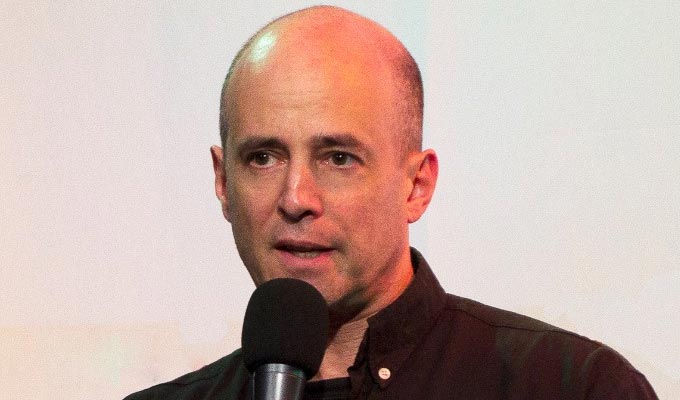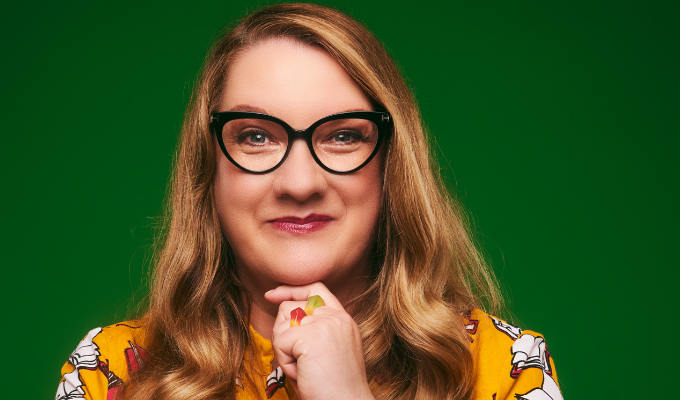
How to build a social media fanbase
Anna Akana has some advice for fellow comedians
If you asked me circa 2015 how to create viral content, I would have had a definitive answer about how to pair a provocative, clickbait title with a colourful, close-up thumbnail and a suggested run time of less than three minutes. At my peak, I was garnering millions of views per video each week, more viewers than HBO's Girls, which premiered weekly on the same day.
Though the digital landscape has changed since I started creating content 15 years ago, I've faithfully made a video a week (sometimes more) for half my life. Through algorithm updates and regime rebrands, I've created not just a fanbase, but something that seems oxymoronic on the ever-changing internet: longevity.
In today's world where Tik Tok and Instagram reels are king and titles/thumbnails are a thing of the past, where platforms make it increasingly difficult to cultivate an audience unless you pay for boosted posts, it can be a confusing endeavour for anyone who wants to build a fanbase online.
Look, it's not hard, it's just wildly time-consuming. It's a full-time job. It's several full-time jobs without the benefit of any real hiatus. But if you're willing to put in the work, it's doable. Each platform is currently valuing watch time: this means they want content creators who are uploading consistently, who will bring back viewers and keep them engaged on a platform. The advice I give to each person who wants to pick my brain is this: you need to create content, you need to create a lot of it, and you need to upload on a realistic schedule for you. Then spaghetti-on-the-wall it until you find something that sticks.
Ideally you want an easy-to-produce, replicable format that you can do again and again and again. If you're a comedian, this means burning your clips. Burn them. Not everyone will see all your work, so don't be precious about it. If you can't sustain having stand up clips online, then you can supplement with sketches, news commentary, roasting, etc.
If you're not sure what to make, keep a notes app in your phone for a few weeks and note what you clicked on and why. (For example, write down the headline of every article you clicked. Or summarise every reel that you double-tapped.) Then go over that list and try to figure out why you were engaging with this. What are you looking for most? What are you hoping to gain? Is it just a laugh? A life hack? Are you seeking education on historical facts? The content you consume is the key to the content you create (and what resonates with audiences).
Very early in my career, I tried all formats: daily vlogs, comedic sketches, musicals, lifestyle, cooking, etc. But the spaghetti that stuck? Mental health.
I was transparent that I was parroting my therapist's advice as I chronicled my own struggles with depression and suicidal ideation. Asian-Americans are the least likely to seek mental health resources or go into therapy because of cultural values we are raised with, but watching comedic sketches that infused qualified therapy advice allowed audiences to be introspective and feel like they were receiving second-hand therapy. I quickly garnered an audience of young AAPI who wanted to work on their own mental health but didn't have the access or resources to qualified professionals. So I became their own personal game of telephone.
As soon as I realised this, I was able to lean into this brand and focus my voice. I filtered everything I wrote through that lens: what are people taking away from this? How am I helping people expand their worldview, heal, or think about an issue? Am I providing a tool that people can take with them? What other professional voices could I amplify that they'd be interested in?
Building a fanbase online is ultimately about creating value for, and relating to, the viewer. It sounds obvious, but I'm shocked at how much content is criminally boring and meaningless. And it doesn't need to be meaningful in the sense of some grand agenda. Silly cat videos? Offer the value of being adorable. Memes? They offer relief from the hellscape that is reality. Comedy? Comedy can offer social commentary, a unique lens on a controversial issue, relief from one's own grief, a sense of being seen.
So as you create, ask yourself: what are you giving people? Why should they care? Our attention span has officially become shorter than an actual goldfish's. Over 86 years of content is uploaded to YouTube every single day. Hone in on what exactly it is that you offer.
I love psychology, sociology, history, education, self-improvement: so those are all natural areas for me to explore and communicate.
What's unique to you? What are you interested in? And how can you channel that into the most digestible, relatable, replicable format? How can you hook people into the things that you naturally gravitate to?
The good news is, most of the time you'll fling content into the void with a mounting sense of frustration. Then you'll see a few things pop off here and there. Maybe you'll get something viral. And as you gain momentum, a new social media platform will appear and you'll start all over again from zero. Fun!
Good luck and start building.
• Anna Akana’s debut stand-up show It Gets Darker is at the Pleasance Courtyard at 5.30pm
Published: 9 Aug 2024






